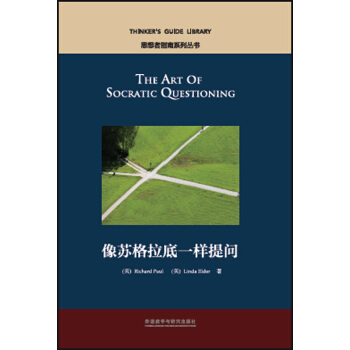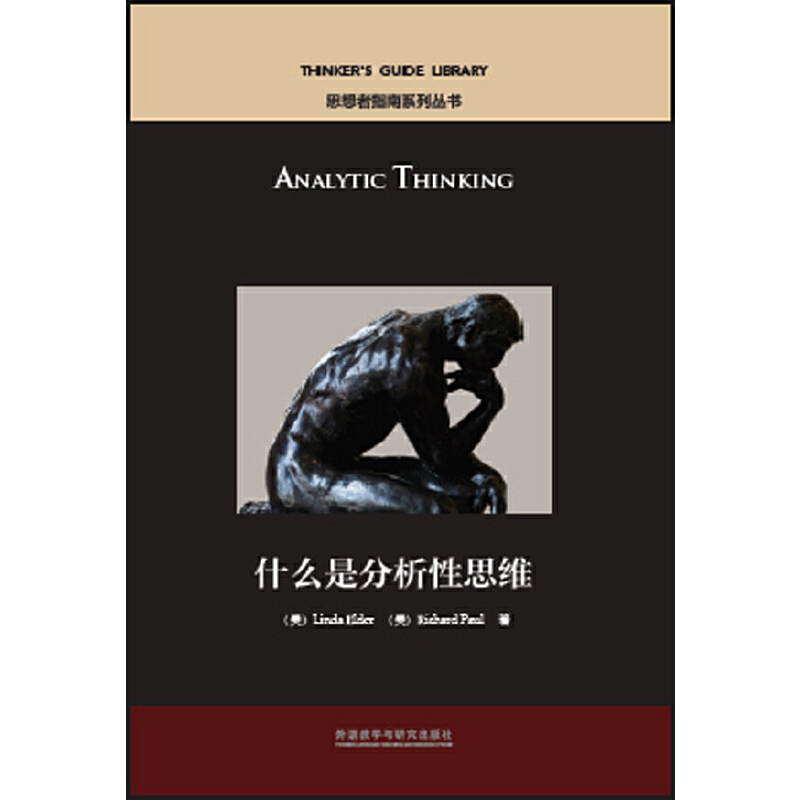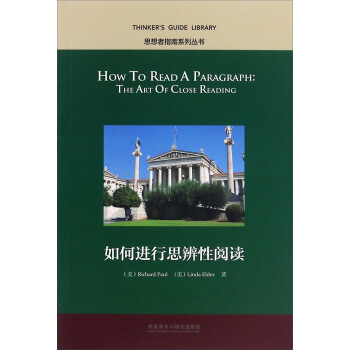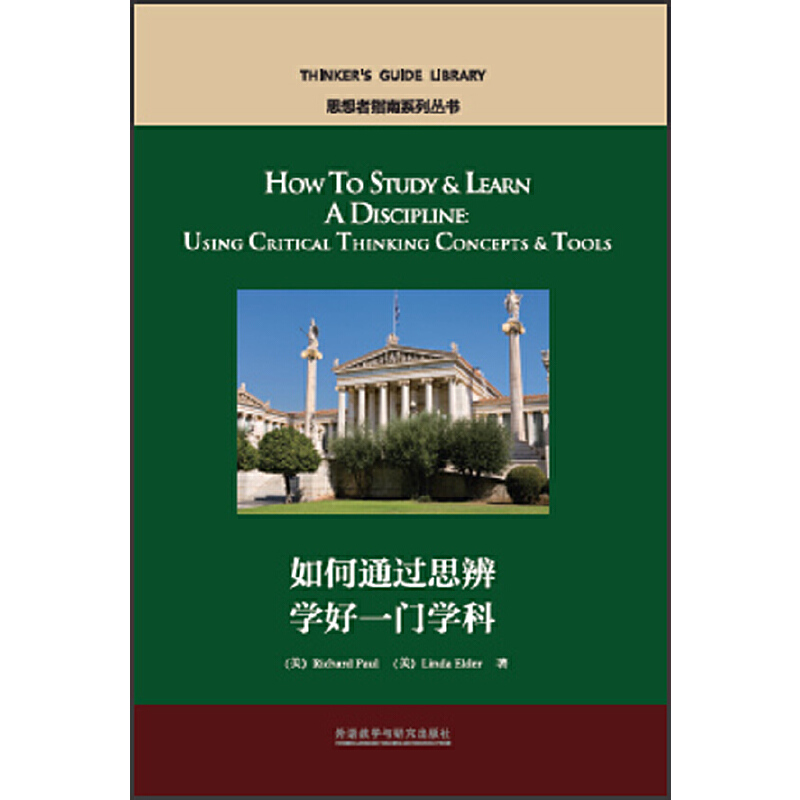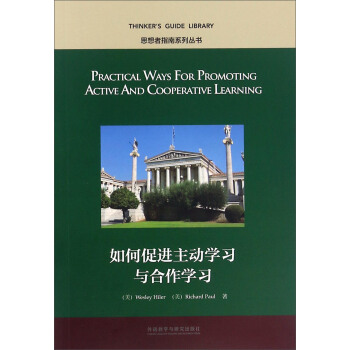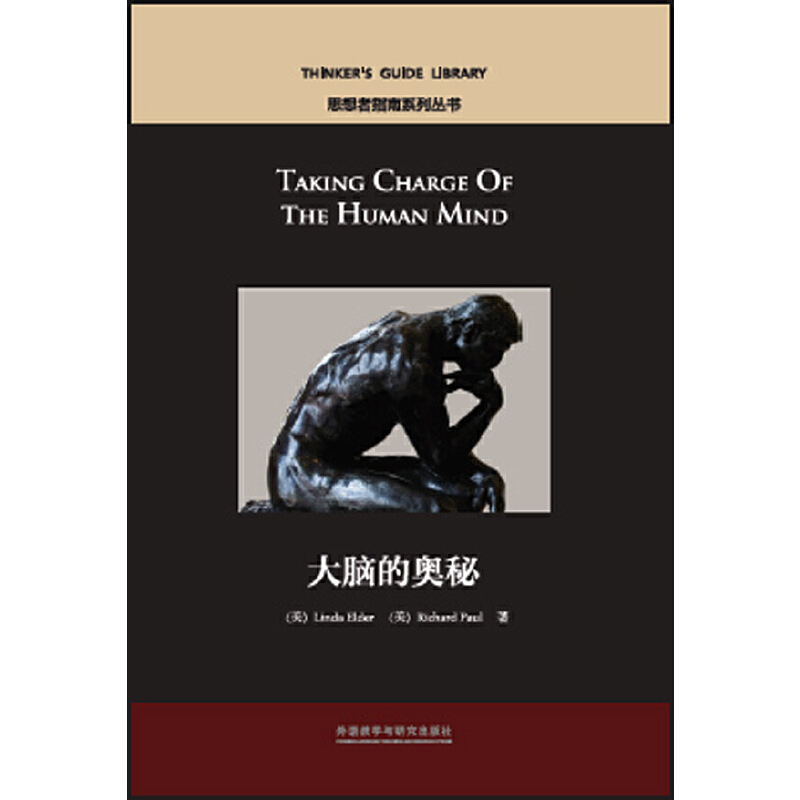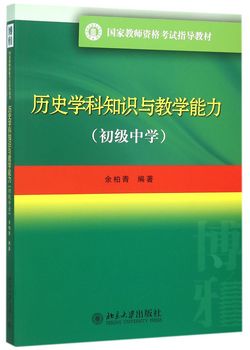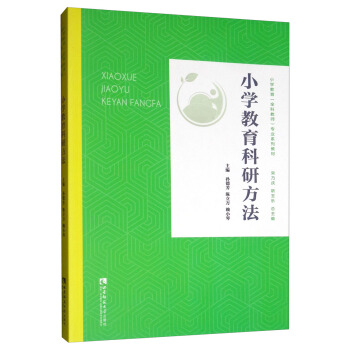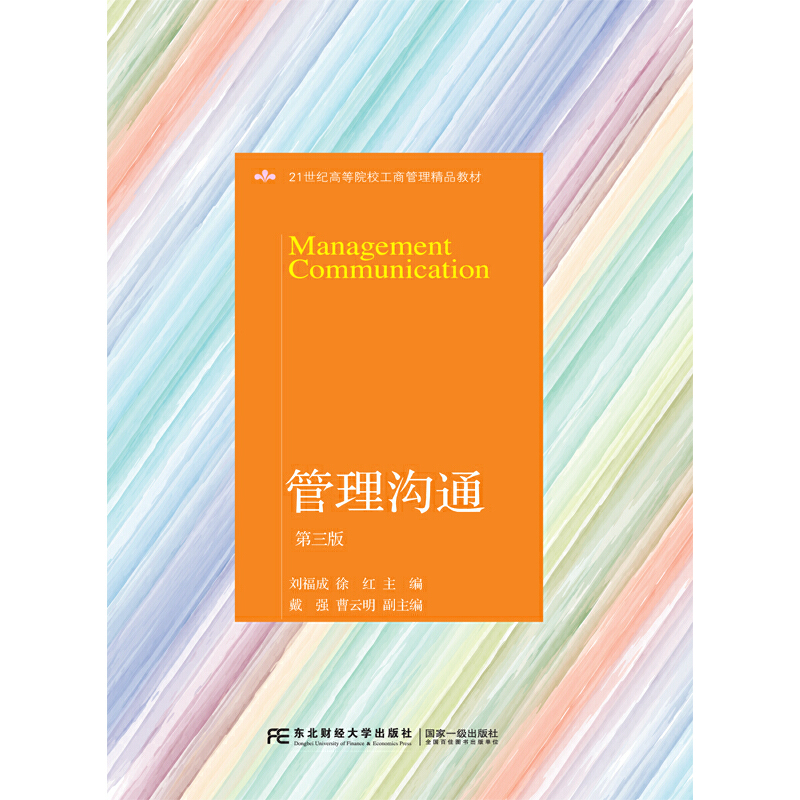像苏格拉底一样提问
定价:¥15.90
作者: Richard Paul、 Linda Elder
出版社:外语教学与研究出版社
- 外语教学与研究出版社
- 9787513575300
- 238109
- 112
内容简介
“思想者指南系列丛书”由外研社原版引进,供读者培养、提升思辨能力(批判性思维能力)。作者Richard Paul和Linda Elder是两位专门从事思辨能力研究的专家,他们创办的专门研究和培训思辨能力的机构Foundation for Critical Thinking享誉全球。Richard Paul和Linda Elder认为,思辨能力并不是玄虚的存在,而是有方法可依、有规律可循,他们将长期研究发现并总结的方法与规律凝聚在了“思想者指南系列丛书”当中。“思想者指南系列丛书”共21本,分为基础篇、大众篇、教学篇,分别针对入门基础学习者、社会大众读者、广大教师及学生阅读学习。“思想者指南系列丛书”语言简洁、内容明晰、易于阅读、方便携带、价格实惠,是学习思辨能力不可多得的好书。
目录
Letter to the Reader Letter to the Reader . . . . . . . . . . . . . . . . . viiIntroduction. . . . . . . . . . . . . . . . .1Part One: A Taxonomy of Socratic Questions Based in Critical Thinking Concepts Questions that Target the Parts of Thinking. . . . . . . . . . . . . . . . .5 Questions that Target the Quality of Reasoning. . . . . . . . . . . . . . . . .9 The Art of Socratic Questioning Checklist. . . . . . . . . . . . . . . . .12 Four Directions in Which to Pursue Thought. . . . . . . . . . . . . . . . . 16 Three Kinds of Questions. . . . . . . . . . . . . . . . .18 Asking One-System, No-System, and Conflicting-System Questions. . . . . . . . . . . . . . . ..19 Questioning Questions: Identifying Prior Questions. . . . . . . . . . . . . . . . .23 Asking Complex Interdisciplinary Questions. . . . . . . . . . . . . . . . .25Part Two: Socratic Questioning Transcripts Transcript One: Exploring the Mind and How It Works (Elementary School). . . . . . . . . . . . .33 Transcript Two: Helping Students Organize Their Thoughts for Writing (Middle School). . . . . .41 Transcript Three: Helping Students Think Deeply About Basic Ideas (High School). . . . . . . . .45 Transcript Four: Helping Students Think Seriously About Complex Social Issues (High School). . .50Part Three: The Mechanics of Socratic Questioning Three Kinds of Socratic Discussion. . . . . . . . . . . . . . . . .56 Wondering Aloud About Truth and Meaning . . . . . . . . . . . . . . . . . 63 Sources of Student Belief. . . . . . . . . . . . . . . . .65 General Guidelines for Socratic Questioning. . . . . . . . . . . . . . . . .67Part Four: The Role of Questions in Teaching, Thinking, and Learning The Teacher as Questioner. . . . . . . . . . . . . . . . . 71 Understanding Content as Interrelated Systems with Real-Life Connections. . . . . . .<

